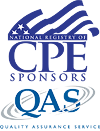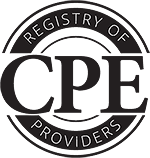Professional and regulatory audit standards require communication of internal control matters noted in a financial statement audit. This assists management and those charged with governance with satisfying responsibilities for designing, implementing, maintaining, and monitoring internal controls. In addition, in order to retain existing clients, lower fee pressures, and gain invaluable referral sources, financial statement auditors must place a priority on being a value-added business advisor. This module will help the auditor with understanding how to improve required internal control communications to be more value-added from the perspective of the client.
Major Topics:
- The required communication of internal control matters noted on an audit
- Evaluating the severity of identified deficiencies, including consideration of qualitative considerations
- Importance of placing a priority on being a value-added business advisor
- Anticipating and preventing internal control issues related to reliable financial reporting, operational efficiency or compliance
- Components of a well-written internal control comment
- Better writing tips and techniques
Prerequisites
Prerequisite: Experience on complex audit engagements.
Designed For: Accountants who are responsible for drafting internal control-related matters noted in an audit.
Learning Objective
- Discover and discuss what, when, and to whom to communicate identified deficiencies in internal control during the financial statement audit.
- Recognize and describe how to categorize the severity of identified deficiencies.
- Explore and explain how to draft written communications in a way that will increase the likelihood of corrective action.
- Discover and describe the importance of making value-added business advice to clients a priority.
- Explore and explain how to anticipate and prevent issues that could negatively impact clients.
Last updated/reviewed: July 27, 2025


